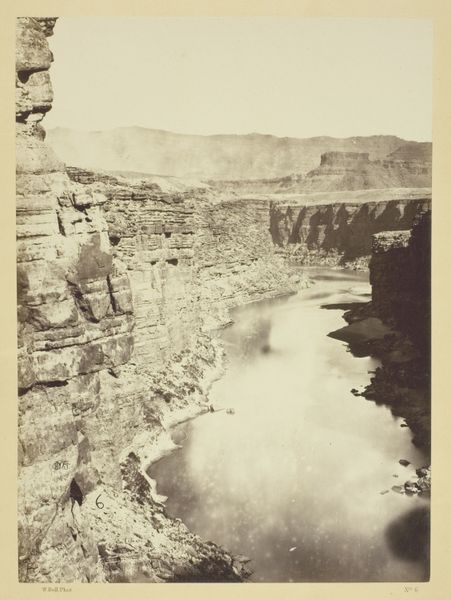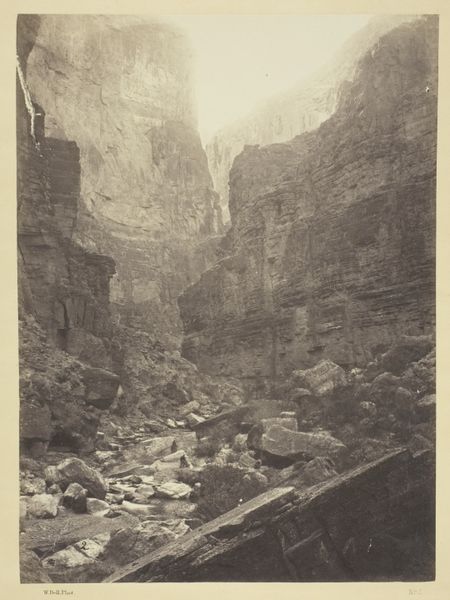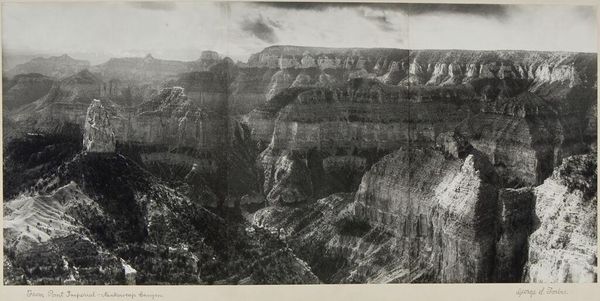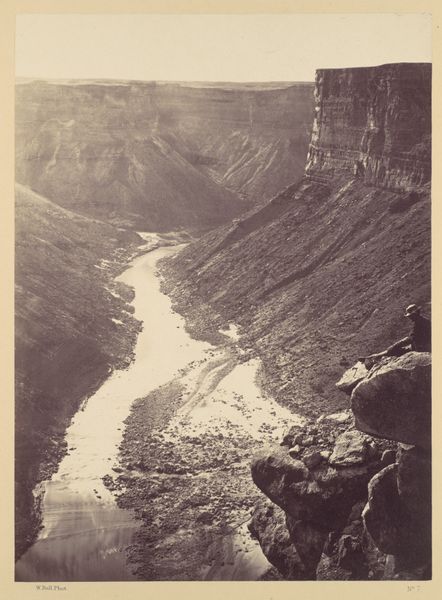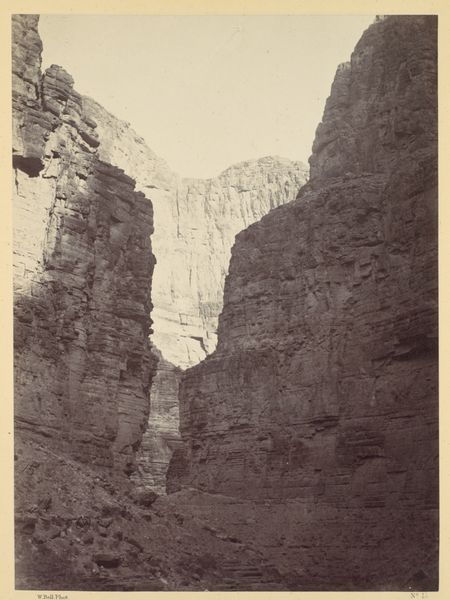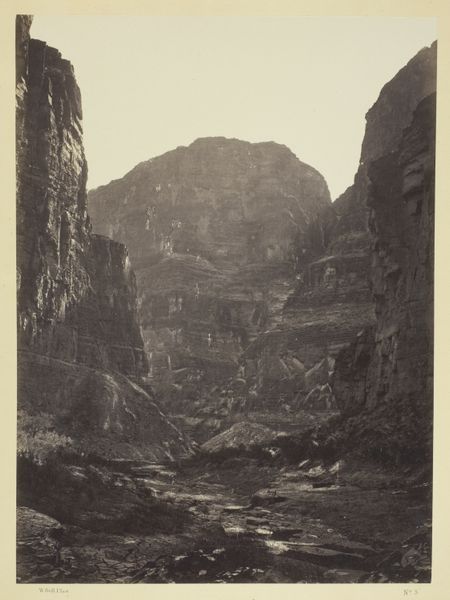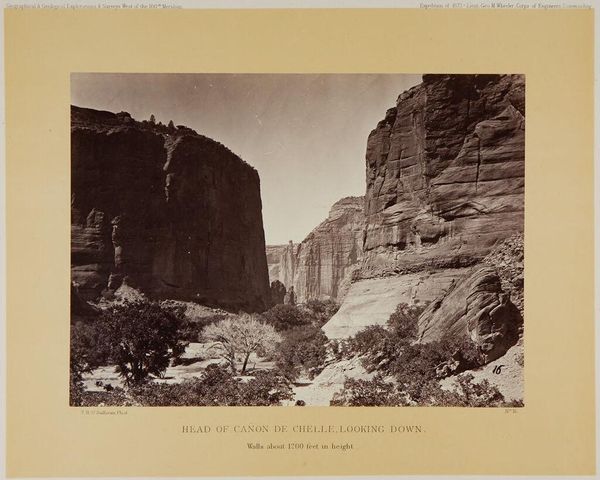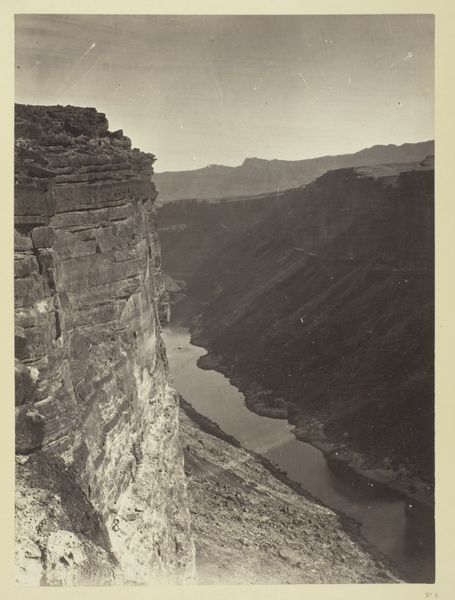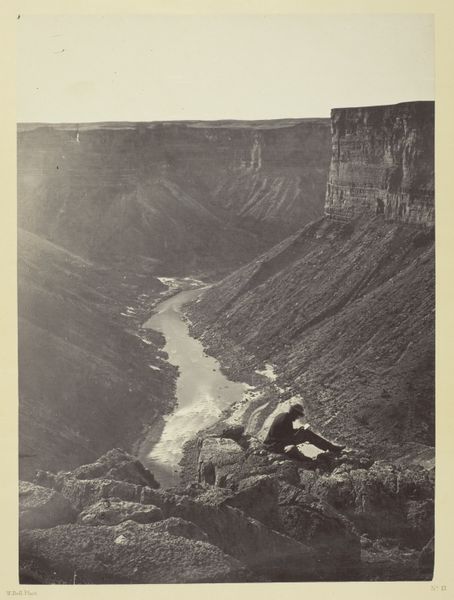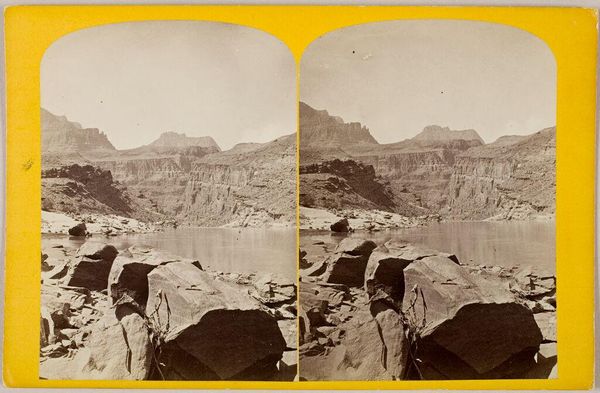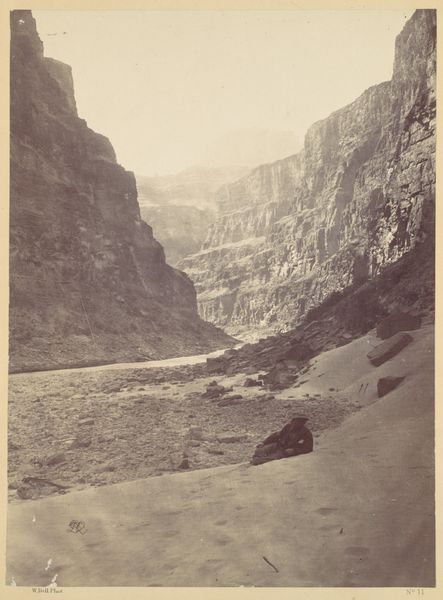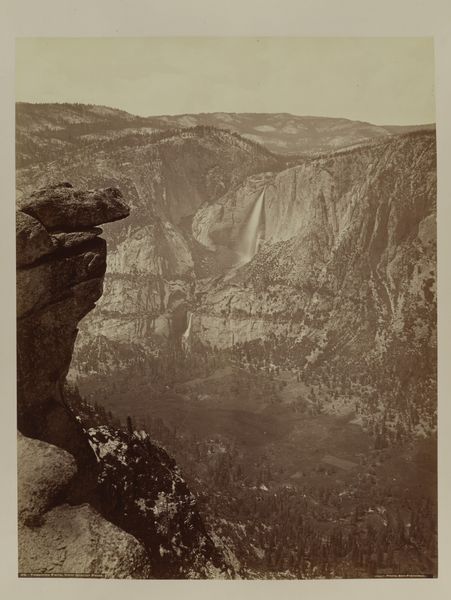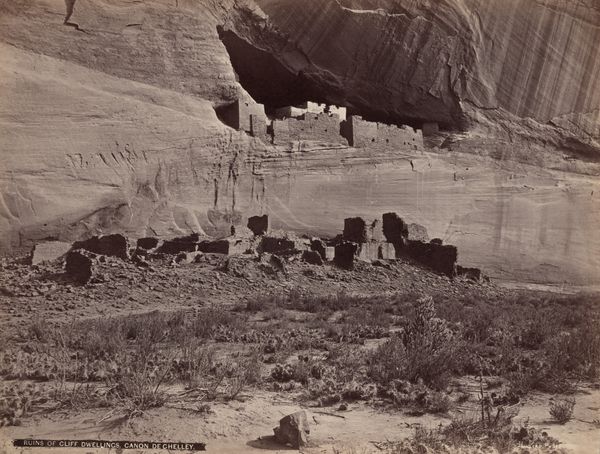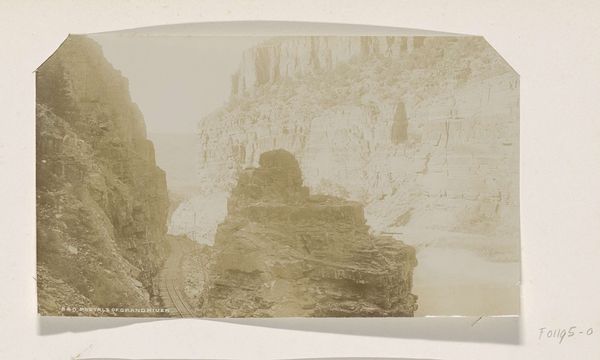
Grand Cañon of the Colorado River, Mouth of Kanab Wash, Looking East 1872
0:00
0:00
print, photography, dry-media, gelatin-silver-print
#
print photography
#
16_19th-century
#
black and white photography
# print
#
landscape
#
photography
#
dry-media
#
geometric
#
gelatin-silver-print
#
monochrome photography
#
hudson-river-school
#
united-states
#
monochrome
Dimensions: 27.4 × 20 cm (image/paper); 49.8 × 38.2 cm (album page)
Copyright: Public Domain
This albumen print of the Grand Canyon was made by William Bell sometime in the 1870s. Bell was the photographer for the U.S. Army's Geographical Surveys West of the Mississippi. These surveys, led by figures like George Wheeler, aimed to map and document the American West, often for strategic and economic purposes. This image presents a seemingly objective view of the Canyon, yet it’s deeply embedded in a history of exploration, resource extraction, and the displacement of Native peoples. The very act of photographing the land was a form of claiming it, turning it into a resource for scientific study and potential development. Bell’s photograph would have circulated in government reports and exhibitions, shaping public perceptions of the West as a vast, untamed wilderness ripe for exploitation. To fully understand this photograph, we can look into survey reports and period newspapers to understand the motives of those who commissioned it and the cultural values that shaped its reception. By situating art within its historical context, we can begin to appreciate its complex relationship to power, knowledge, and social change.
Comments
No comments
Be the first to comment and join the conversation on the ultimate creative platform.
